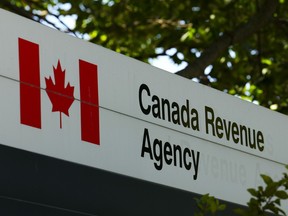Tax season is a three-month period, typically from late January to mid-April, when people prepare their tax documents and report their income for the prior year to the IRS.
This is also the time when people will settle their bill if they owe taxes or receive notice that a refund is coming their way if they overpaid.
When can I file my taxes?
The tax season opening date, which usually falls in late January, marks the time when the IRS begins to accept and process tax returns for the previous tax year.
Returns that are filed after tax season ends in mid-April are generally considered late, which could result in penalties and fees if taxes are owed. Filers who get a timely extension have until October to file, but their tax bill is still due in April.
States set their own tax season deadlines, which may or may not mirror the federal dates. Your state tax department’s website is often the best resource for up-to-date filing information.
🤓Nerdy Tip
Although you can file your taxes any time during tax season, it’s worth noting that some tax software providers and tax preparers increase pricing as Tax Day approaches.
How early can you file taxes?
The IRS doesn’t begin processing returns until the tax season officially starts, but taxpayers can begin preparing their tax returns ahead of the official start date.
According to the agency, most tax software and many tax pros will hold onto a completed return and submit it to the IRS when tax season begins.
While it can be tempting to get ahead of the crowd, you’ll want to make sure you have all your documents in order before starting the filing process. Some documents that you’ll need to file aren’t required to be sent out until after tax season has begun. For instance, a key form many filers need to reference is the W-2, which employers have until Jan. 31 to send out.
Simple tax filing with a $50 flat fee for every scenario
With NerdWallet Taxes powered by Column Tax, registered NerdWallet members pay one fee, regardless of your tax situation. Plus, you’ll get free support from tax experts. Sign up for access today.
for a NerdWallet account
Transparent pricing
Hassle-free tax filing* is $50 for all tax situations — no hidden costs or fees.
Maximum refund guaranteed
Get every dollar you deserve* when you file with this tax product, powered by Column Tax.
Faster filing
File up to 2x faster than traditional options.* Get your refund, and get on with your life.
*guaranteed by Column Tax
The start date for the 2025 tax season is yet to be announced, but it is likely to be in late January based on previous years’ trends. The IRS typically announces the date in early January.
The last day to timely file your taxes in 2025 will be April 15. The tax deadline stays the same year-to-year unless it falls on a weekend, in which case it’s pushed to the following business day.
There are certain exceptions of course, such as in 2020 and 2021, when the tax deadline was extended due to the COVID-19 pandemic.
The 2024 tax season began Jan. 29. Tax Day, the last day people could submit returns without facing late penalties, was April 15. However, those with a valid extension have until Oct. 15 to file their return.
How to prep for tax season
Look into tax credits
Before tax season begins, it’s wise to figure out which tax credits or deductions you might be eligible for. Certain popular tax credits are adjusted for inflation each year, so it’s possible to qualify for ones you previously didn’t qualify for.
Good tax software should be able to determine which credits and deductions you qualify for through interview-style questions.
Gather important information
There are a few things you’ll want to have on hand in January to make your filing process as smooth as possible. These include:
-
Income documents, such as a W-2 or 1099 form.
-
A Social Security number or tax ID.





















Discussion about this post